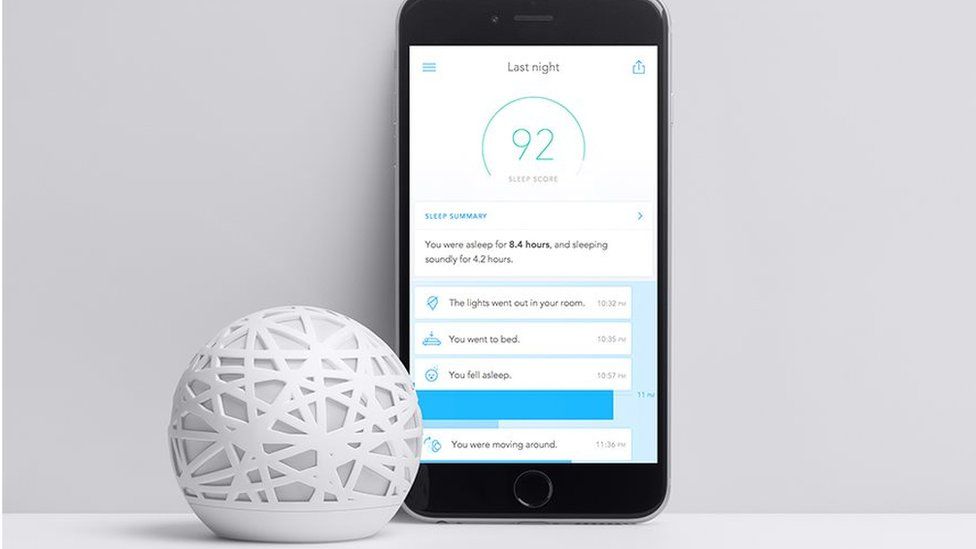Hello's sleep-tracking Kickstarter hit collapses
- Published

A sleep-tracking tech start-up founded by a Briton, which was one of Kickstarter's biggest success stories, has collapsed.
Hello raised more than $2.4m (£1.9m) for its Sense bedroom monitor via the crowdfunding site in 2014, and went on to attract a further $40.5m.
Private backers included Singapore's sovereign wealth fund Temasek and Facebook Messenger chief David Marcus.
Hello confirmed it would "soon be shutting down", via Medium's news site.
"The past few months have been incredibly tough, especially on the team of Hello. For that I'm incredibly sorry," wrote its chief executive, James Proud.
"Hello has been my whole life for five years, and I couldn't have asked for a better group of people to have travelled with."
The product had been on sale for $149.
Customers have been told that the company is "unsure" whether the online service that supports the hardware will continue to operate - it would need to be acquired by a third-party. But they can export their existing data.
Owners have also been advised to request refunds from shops they bought the devices from.
However, if they purchased the kit directly from Hello itself, they have been told there will be no way to get their money back.
According to the news site Axios, Hello had held "fire-sale talks" with the fitness tracker specialist Fitbit, but failed to reach a deal.
A source close to Hello said that the firm - along with some other hardware developers - had found it more difficult to raise funds in recent months.
Missed lifelines
Sense comprised:
- an orb that monitored the owner's bedroom
- a clip that attached to their pillow
- a mobile phone app
The equipment produced a unique score for the previous night's sleep and aimed to wake the owner up at the best point in their sleep cycle.
It had gained voice controls in November, in its last major update.
Mr Proud - who was born in London - gave up plans to go to university to create the gadget and moved to California after receiving a grant from Peter Thiel, the Silicon Valley entrepreneur who co-created PayPal and now acts as an adviser to President Trump.
The Briton had originally planned to create a wearable sleep-tracking gadget.
But he switched focus to create a table-top device after deciding that this would make customers more likely to keep using it.
"We spend a third of our day [asleep]," he told the BBC in 2014, "It's the most critical part of the day."
He managed to attract money from other big name backers, including ex-Twitter chief executive Dick Costolo, Facebook's virtual reality vice-president Hugo Barra and Spotify's head of special projects, Shakil Khan.
But Sense struggled against competition from bigger brands, including Withing's Aura sleep-tracking alarm clock and Fitbit's sleep-tracking wristwear.
In addition, Apple acquired another rival, Beddit.
"Kickstarter can give you a good basis to get your product off the ground and an awful lot of PR, but translating that into a successful commercial product is difficult," said Ben Wood, from the CCS Insight tech consultancy.
"Going to the next level, finding more funding and getting backing - or a takeover offer - from a big company is often the lifeline that these companies need to keep going."
The failure has not deterred another British entrepreneur currently using Kickstarter to raise funds for a new sleep-tracking device.
Fares Siddiqui has already secured more than $100,000 for Circadia, and hopes to distinguish his product by selling an add-on Smart Therapy Lamp designed to "tune" users' body clocks.
"The market is too saturated now with products that just do tracking, and people want to be able to do something about how they sleep," he told the BBC.
"Treatment is important and [Hello] missed that key part of the loop."
- Published9 March 2017
- Published17 February 2017
- Published11 May 2016
- Published30 July 2014